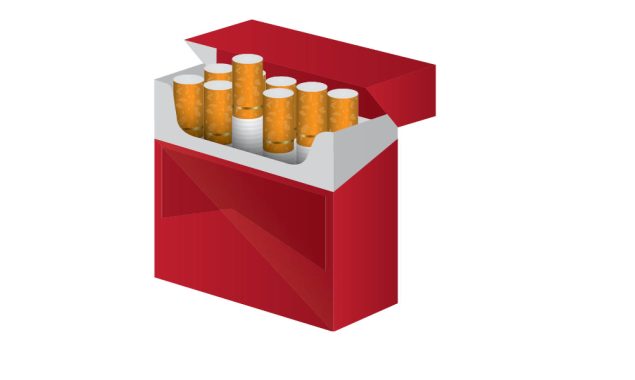Synopsis
Lack of political will, corruption and influence main causes

LAHORE: The flourishing illicit trades of tobacco, tea, tyres, lubricants and pharmaceuticals are denting the national exchequer with a loss of Rs320 billion annually in taxes.
The lack of political will, corruption in tax administration and political influence of evaders are the main causes of the illegal trades.
Unabated smuggling, counterfeit and non-duty paid production and distribution of cigarettes alone is depriving Pakistan with the revenue of at least Rs80 billion.
As per the industry statistics, of the total 52 registered cigarette manufacturers, the top two companies pay 98 per cent of the tobacco trade taxes. The 2 per cent share of the remaining 50 companies is a major hurdle in the way of documentation of the economy and providing a level-playing field to the local and foreign investors.
A large number of locally-manufactured cigarette brands are being sold at Rs20 to Rs40 per pack of 20 cigarettes, whereas the government has imposed a minimum tax of Rs42.12 per pack and set the minimum price of Rs62.76. The violations of the laws compromise the government’s fiscal objectives and the public health agenda.
Millions of young people are being hooked to narcotics through cigarettes, leading to thousands of deaths every year from cancer and cardiovascular diseases.
Despite the warnings from international research institutes, the authorities have failed to curb the annual losses of billions of rupees.
The government has shifted a burden of Rs350 billion on the people through a mini-budget to meet strict conditions of the International Monetary Fund (IMF) to cover the deficit.
Stakeholders and industry players say the government has preferred to increase tax rates and eliminate exemptions instead of reducing the economic losses caused by illicit trade.
Illicit tobacco trade is flourishing and legal and legitimate trade is being reduced every year due to the government’s inaction.
According to Ipsos, an international economic research organisation, illegal trade in the locally-manufactured cigarettes and tax evasion is costing the national exchequer Rs80 billion annually, while the government has failed to implement policies to protect the public health.
Improper implementation of tax exemptions and the loopholes in the tax system is benefiting the illicit tobacco trade.
For instance, in Azad Jammu and Kashmir, there is a tax exemption for the products manufactured and sold locally; however, the tax is fully applicable in case the products enter the tax territories.
Due to the tax exemptions and misuse of special status, Azad Jammu and Kashmir has become a haven for tax evaders, especially illegal cigarette factories, which are taking unfair advantage of this facility.
Most of the factories located in AJ&K are selling their products in Punjab, Khyber-Pakhtunkhwa and Sindh. These brands are being sold below the official prescribed price due to tax evasion. Similarly, unchecked tobacco processing in the green leaf threshing plants is the root cause of massive tax evasion in the tobacco sector.
A Federal Tax Ombudsman report has pointed out that there is a significant difference between the tax record and the Pakistan Tobacco Board’s statistics.
According to the FTO, the inspection by the commissioner Inland Revenue, Regional Tax Office, Peshawar, showed that owing to the lack of effective monitoring of GLT units the national exchequer has to suffer a loss of Rs40 billion in taxes during 2017/18 and 2018/19.
Through a proper monitoring of GLTs, the main link in supply chain of 75,000 plus farmers, 500,000 plus retailers and 52 manufacturers, precious revenue could be saved.
Only 11 GLTs are supplying raw materials to cigarette manufacturers. It is strange that the FBR with its huge workforce cannot monitor just a few GLTs.
To prevent the losses to the national exchequer from tax evasion and to strengthen the tax culture, the government has implemented a track and trace system based on tax stamps for products of four major industries, sugar, fertiliser, tobacco and cement.
Experts say that with the use of technology, the government can prevent tax evasion. However, they say that at first the government should strictly implement a uniform law across the country.
Read More News On
Catch all the Business News, Breaking News Event and Latest News Updates on The BOL News
Download The BOL News App to get the Daily News Update & Follow us on Google News.




